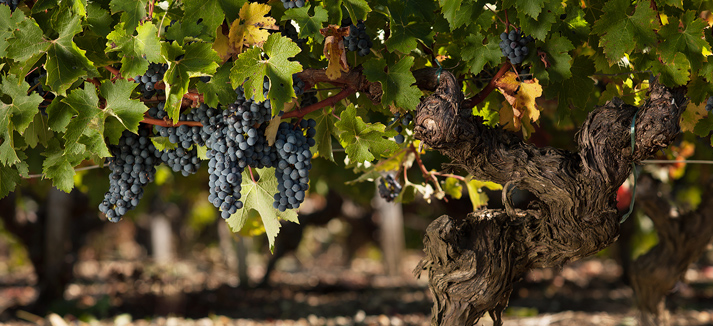Yesterday’s and today’s crop insurance
Crop insurance contracts have for many years insured vineyards against damage caused by hail and storms (extension imposed to companies in 2002).
In addition, the guarantee scheme for agricultural disasters (co-financed by the State and by an additional tax on agricultural insurance contributions) has been in place since 1964 to compensate farmers that have suffered from “non-insurable” damage.
Following the numerous natural events with unusually large magnitudes, the criticisms put forward by agricultural workers and most importantly because of its impact on the national budget, the State wishes to switch the coverage of most climatic events over to private insurance companies.
In support of this decision, the State will ensure:
- Subsidies that encourage farmers to take out insurance policies by partially covering subscription costs.
- The deletion of the agricultural disaster scheme in 2011 (decree made official on 29/12/2010).
- The purpose of the Contingency Deduction (French DPA) is to encourage self-insurance via a savings account, to stay in line with “normal” variations in turnover within a fiscal framework, limited to €23,000 per financial year to the extent of taxable profit.
- Multi-hazard crop insurance (French AMR) alone can insure crops listed by the FNGRA (French Agricultural Risk Management Fund) against risks other than hail and storms.
Hail insurance for crops
Guarantees concern crops that are harvested throughout the year. Decreased yield constitutes the basic guarantee for all hazards covered by the contract.
The guarantee applies in the event of decreased crop yield, insured according to the guaranteed yield, without having to show any official harvest declaration.
Losses caused by the hail stones’ mechanical impact are covered. The storm hazard is legally granted in addition to the hail hazard (Art. L.122 of the Insurance Code).
All losses caused by the mechanical action of violent winds during a storm or hurricane, such as the deterioration of vine shoots, vine stocks, grape bunches or individual grapes. There are several types of deductibles.
A rate of 10, 20 or 30% applies to the insured capital for each damaged plot (or plot section if it was not damaged evenly).
An increase in deductibles helps reduce the contribution rate.
> Download the quote request form hail and storm insurance
Multi-hazard insurance for crops
Two possible options:
- Standard Multi-Hazard Crop Insurance: The ideal solution for protecting all your crops against climatic hazards, with a single deductible rate regardless of the hazard.
- Buyback deductible option: The ideal solution to protect yourself against a “hard blow”, whilst preserving a high level of protection against hail for all crops.
Every year, an implementing decree sets the conditions for State support for this type of contract. A unique subsidy equal to a maximum of 65% of the ex-tax premium, excluding the additional premium corresponding to the repurchase of the loss threshold and/or deductible, is granted when subscribing to the contract. This subsidy is co-financed by the European Union (75%) and the Member State (25%).
The wine-grower is in charge of the subsidy request:
- An application must be submitted to the administration within the framework of CAP application (latest on 15 May of year N).
- The farmer must have a PACAGE number, attributed by the DDTM (French departmental directorate for land and sea affairs).
- The farmer must settle the entire premium by 31 October at the latest.
- The farmer must then hand a contract declaration form in to the administration before 30 November.
- The subsidy is paid directly to the insured party as of March of year N+1.
This subsidy cannot be combined with any other departmental or regional subsidies. The guaranteed capital is equal to the quantity insured by the insurance unit price.
The yield insured for each appellation is equal to the estate’s production average over the last 5 years for said appellation (based on yield declarations), not considering the lowest and highest value.
> Download the 2015 subsidy request form

